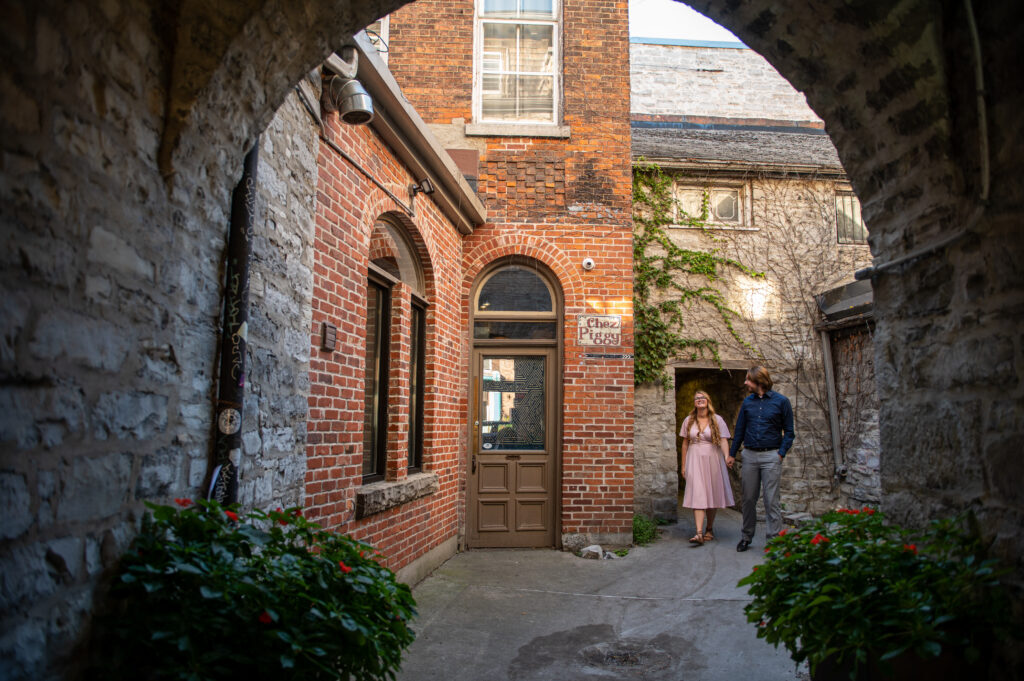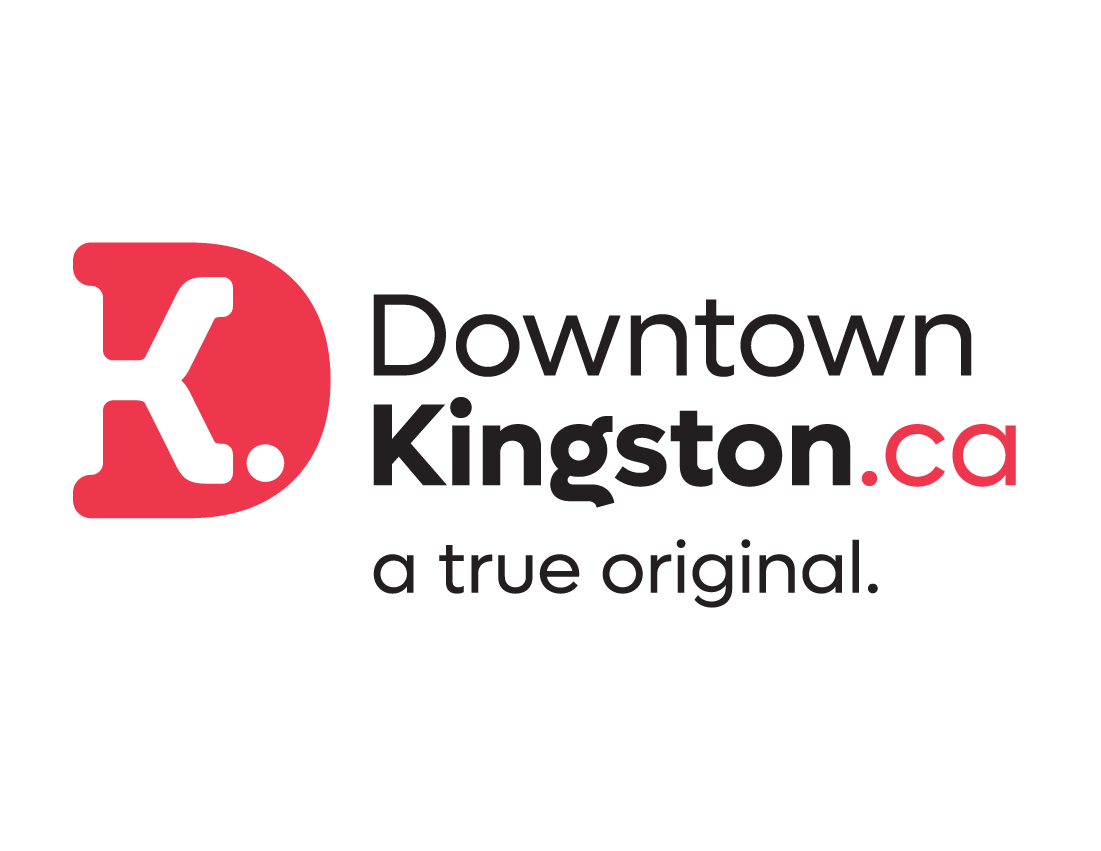The clop of hooves and creak of wooden carriages once resonated through Kingston’s limestone alleyways. While the equestrian channels are now obsolete, they stand as a reminder of the city’s long history.
If you want to see the historic carriageways up close, try a free Kingston Creative Walking Tour.
The downtown film tour guides you through Springer Market Square, once bustling with canvas–topped trolleys transporting people and goods across the city, while the west-of-downtown literary tour takes you around Queen’s University’s campus. Long-standing homes in the University District are indented with wide arches originally designed for carriages.
Here are some other carriageways you may spot on your next jaunt around Kingston.
Chez Piggy
68 Princess Street
This building on Princess Street wasn’t always a fine dining establishment serving delicious Sunday brunch. Built in 1806, the space once operated as a horse stable.
The limestone stable withstood a devastating fire that swept through Kingston in 1840. After flames engulfed Kingston’s historical landmarks, all the city’s buildings were constructed from brick and stone in lieu of wood. Hence Kingston’s nickname, “the Limestone City.”
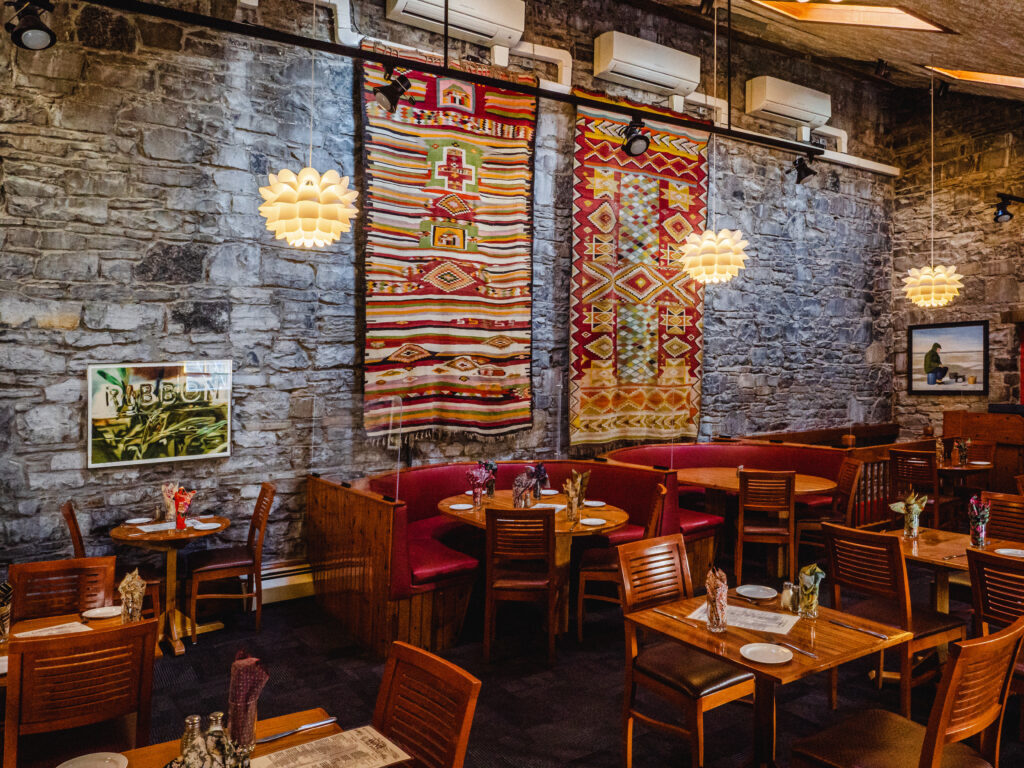
While the smell of mud and hay was replaced with the pleasant aroma of firewood and homemade marinades, Chez Piggy preserves the building’s history through its interior design. The restaurant resembles a cozy, turn-of-the-century tavern where men sporting baker’s boy caps, tool belts, and military uniforms drank beer after a long day of work.
With its exposed grey brick, brown furniture, warm lights, and a grand, curved staircase leading to the second floor of the restaurant, Chez Piggy transports customers hundreds of years in the past, while offering a delectable dining experience.
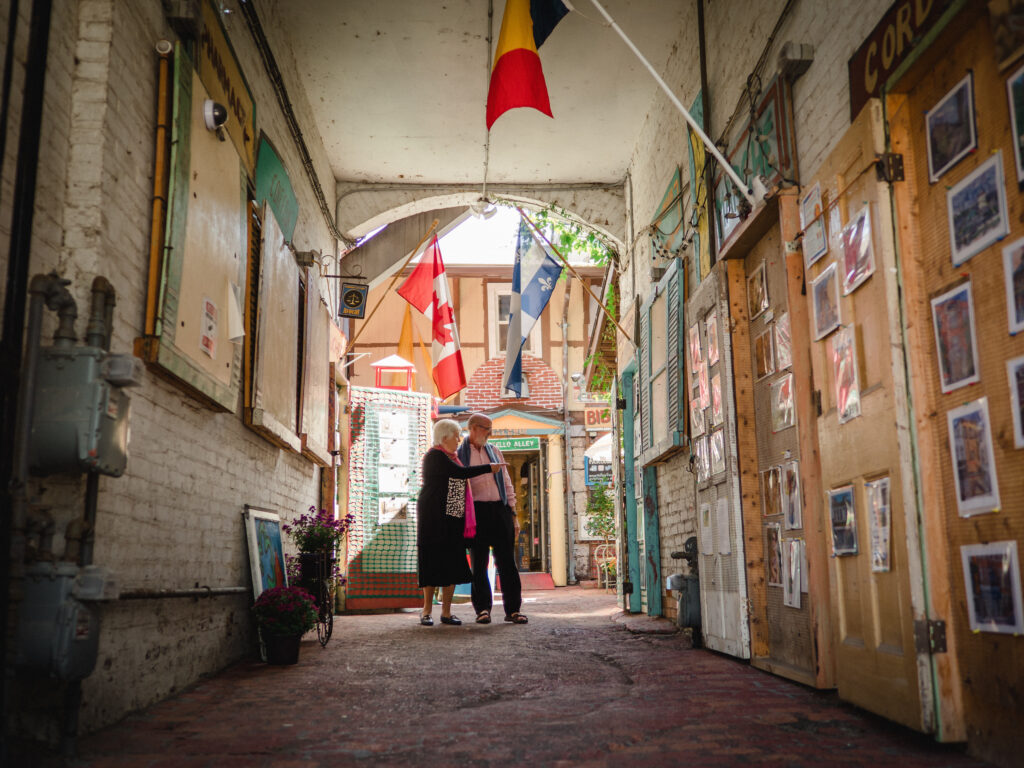
Martello Alley
203B Wellington Street
“Martello” not only refers to Kingston’s military towers but is an ode to the city’s rich heritage, serving as the name of a historic alleyway.
Today, Martello Alley resembles Rue du Trésor in Quebec’s old city, adorned with paintings, drawings, and postcards from local artists. However, when David and Wendy Dossett, the founders of the eclectic artisan alley, stumbled upon the limestone archway on Wellington Street, its condition was akin to its 19th–century state: a dark, dirty passageway for horse-drawn carriages.
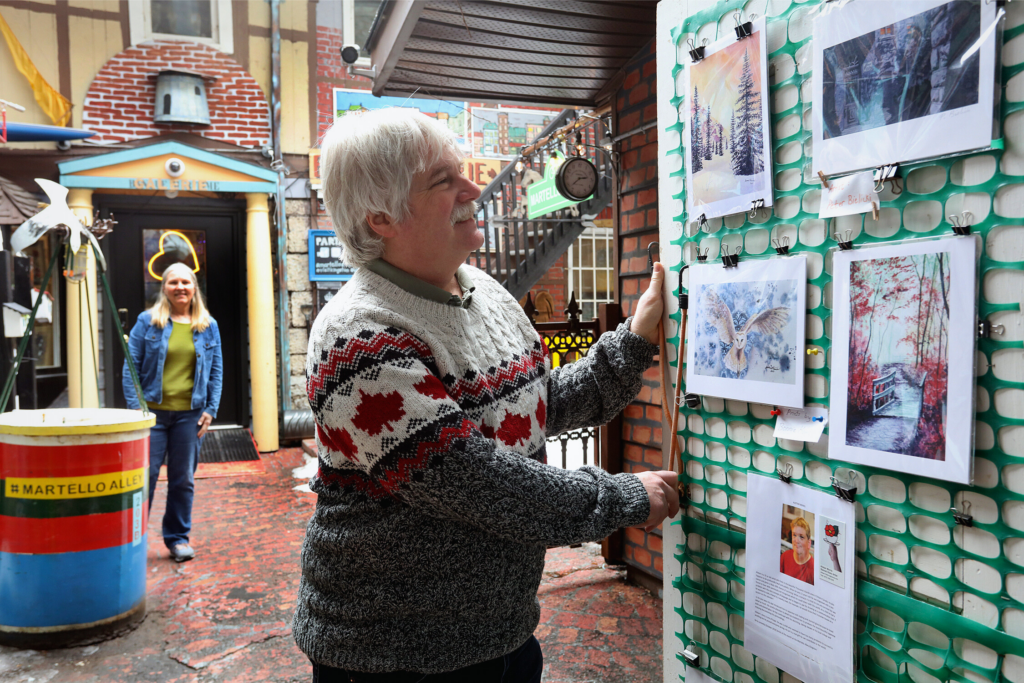
In 1893, Kingston was home to 788 horses, meaning high and wide carriageways like Martello Alley were commonplace. When cars finally came to Kingston, horse-drawn carriages were phased out.
If you want to explore more of Kingston’s alleys, visit Antique Alley, a vintage shop bursting with unique home goods.
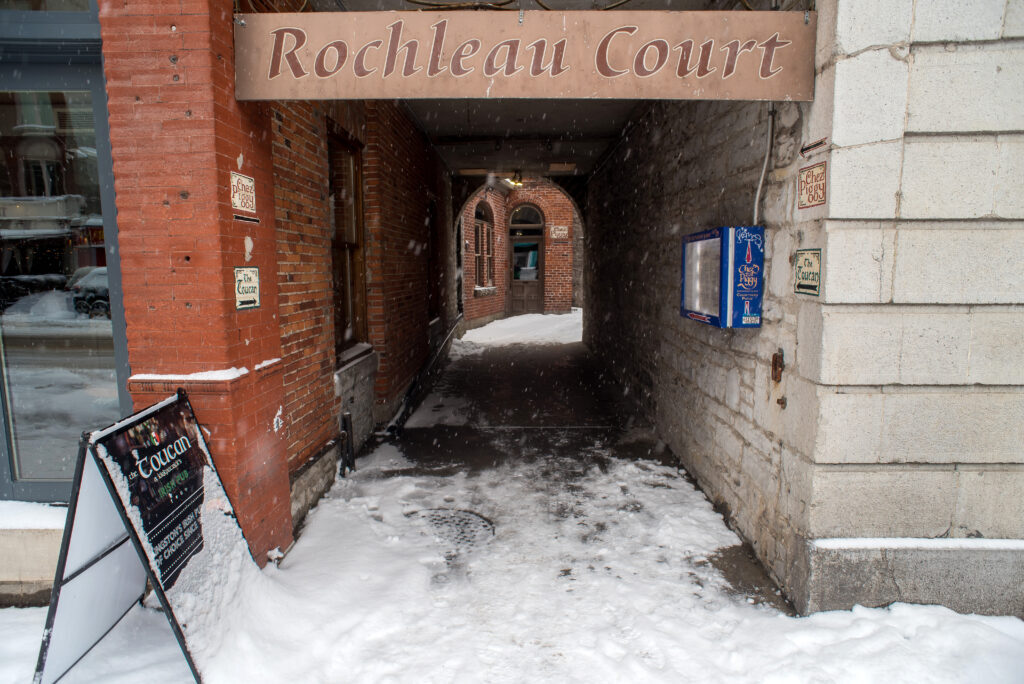
Rochleau Court
70-72 Princess Street
Tucked away behind the historic limestone buildings and alleys leading to Chez Piggy and The Toucan is Rochleau Court.
The historic area takes its name from François-Xavier Rocheleau, a prominent member of Kingston’s 19th-century elite. Rocheleau made his presence known both figuratively, cultivating a strong community by constructing several buildings in Kingston, including St. Joseph’s Church (392 Palace Road), and literally, etching his initials into the facade of his Princess Street home (70-72 Princess Street).
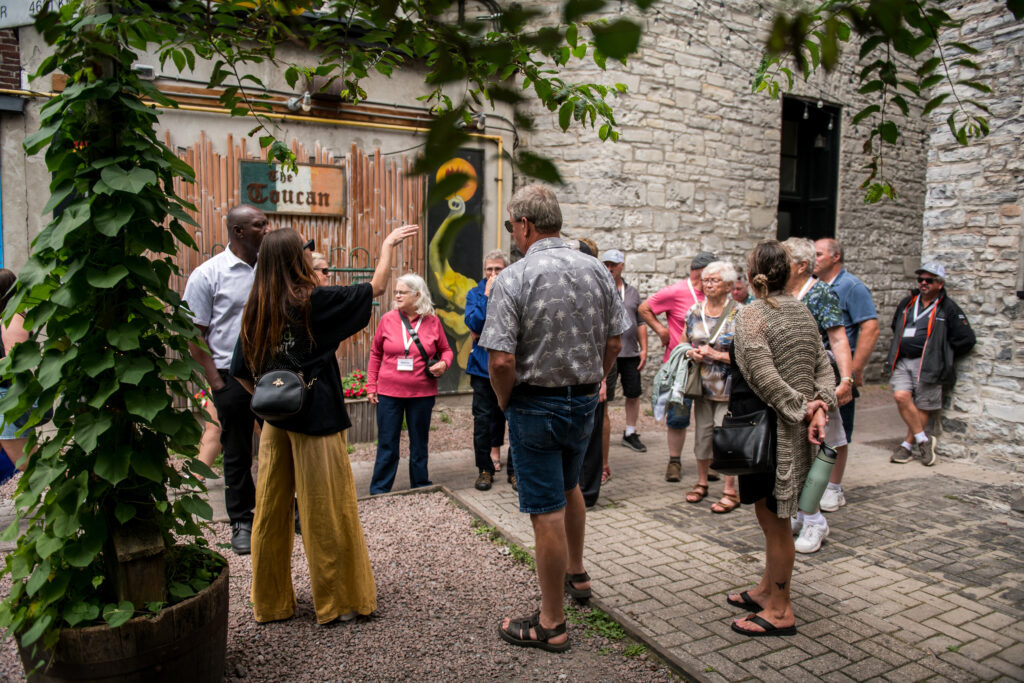
The Quebec native built his lavish house after moving to Kingston in 1790 with his wife and children. The building was later used in the 1840s by Alexander Campbell, a father of the Canadian Confederation.
The historic structure is now home to Amanda’s House of Elegance and Modern Primitive Boutique.

